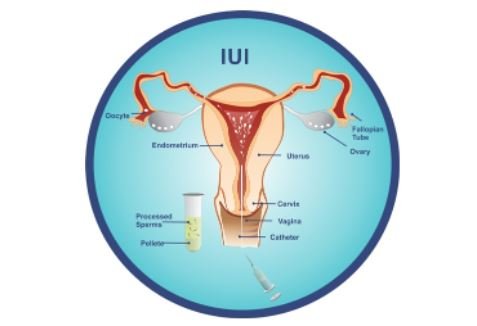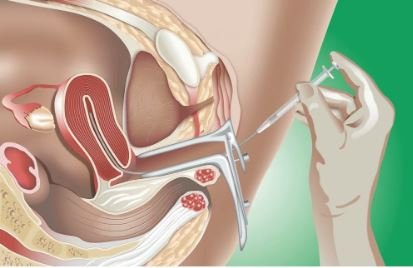What Is Intrauterine Insemination (IUI)? – Everything You Need To Know!
In this article, Dr. Hrishikesh Pai one of the best IVF Doctors in India talks about “What Is Intrauterine Insemination (IUI)? – Everything You Need To Know!
Dr. Hrishikesh Pai is an internationally acclaimed fertility doctor. He is well-known and revered not just in India, but throughout the world. He is recognized for pioneering a number of therapies and methods that have altered reproductive therapy in India. He has been honored with over 50 awards for his exceptional contributions to reproductive medicine.
Intrauterine insemination (IUI) is a form of artificial insemination that involves the insertion of sperm directly into the uterus. IUI is usually carried out when natural fertility is an issue, or in cases where the male partner has a history of fertility issues.
According to research, around 30 percent of infertile couples who undergo IUI treatment will conceive within three cycles.
For IUI to be effective, it needs to take place after ovulation has been confirmed and the female partner’s egg reserves have been evaluated. If the female partner is beyond childbearing years, an IUI performed with the assistance of a fertility specialist may be worth considering.
Contents
What Happens During Intrauterine Insemination?
India-based Dr. Hrishikesh Pai one of the top IVF specialist says that during IUI, the male partner’s sperm is inserted directly into the woman’s uterus through a process called insemination. The sperm then seeps into the uterine lining and can fertilize an egg with the help of natural chemicals.
This procedure usually takes place within 5-10 days after ovulation has been confirmed, but it can be done anytime during your cycle. After the procedure has taken place, you will be able to see if you are pregnant or not. This can happen as soon as a week after the procedure or take up to 2 weeks.
An intrauterine insemination is a form of artificial insemination that involves the insertion of sperm directly into the uterus by way of a catheter or other similar device, which is inserted by your doctor through your vagina (it shouldn’t hurt).
It is used when natural fertility is an issue, or in cases where the partner has a history of infertility issues (male or female), as well as other factors that may have an impact on their chances of conceiving such as age. For intrauterine insemination to be effective, there must be ovulation confirmation and egg reserves must be evaluated before treatment takes place.
How Often Does Intrauterine Insemination Occur?
Intrauterine insemination is often performed on a monthly basis. This means that the couple has a chance of getting pregnant every month.
IUI is not considered to be an invasive procedure, so it can easily be carried out in a doctor’s office or clinic setting notes Dr. Hrishikesh Pai a leading IVF surgeon in India.
Is Intrauterine Insemination Safe?
Intrauterine insemination is a safe procedure that poses no significant risks to the mother or the baby. The general risks associated with any type of insemination are minimal and include bleeding, cramping, endometritis, and pelvic inflammatory disease.
The benefits of IUI over other forms of artificial insemination are numerous. It can be used to treat male infertility as well as female fertility problems and when there are other factors that may have an impact on the couple’s chances of conceiving, such as age. The risk of miscarriage is low with IUI, which is why it is preferable to other forms of insemination when infertility treatment has been ruled out.
IUI can also be performed at any time during the menstrual cycle without interrupting ovulation or menstruation. This can help prevent pregnancy-related complications like preterm delivery and gestational diabetes mellitus (GDM).
Advantages of Intrauterine Insemination
IUI is a safe and effective way to increase your odds of conception.
IUI increases the odds of conception by improving the quality of sperm, which in turn improves a couple’s chances for pregnancy. The sperm are delivered directly into the uterus, where they can fertilize an egg.
IUI helps couples who have already been trying to conceive for a long time and has many benefits, including:
- Increased chances of natural conception
- No need to use expensive fertility drugs or treatments
- No complications during pregnancy
Intrauterine insemination may be appropriate when you’re trying to get pregnant and experiencing problems with ovulation, menstrual cycles, or vaginal dryness. It’s also a good option if you’re undergoing fertility treatments, such as in-vitro fertilization (IVF) or intracytoplasmic sperm injection (ICSI), and have reached your egg reserve limit opines Dr. Hrishikesh Pai one of the best IVF doctors in India.
Disadvantages of Intrauterine Insemination
- Intrauterine insemination has a high failure rate.
- It is typically only used when natural fertility is an issue, or in cases where the male partner has a history of infertility problems.
- It can be costly depending on your location and the fertility specialist you choose to use.
- There are no guarantees that pregnancy will occur with IUI, and more than half of women who have undergone IUI have experienced a spontaneous abortion.
Conclusion
With the advancement of technology, an intrauterine insemination is a modern option for women seeking to become mothers and avoid the risks of in vitro fertilization to conceive. Intrauterine insemination is a process that involves the injection of sperm into the uterus and has many benefits for the woman and child.


